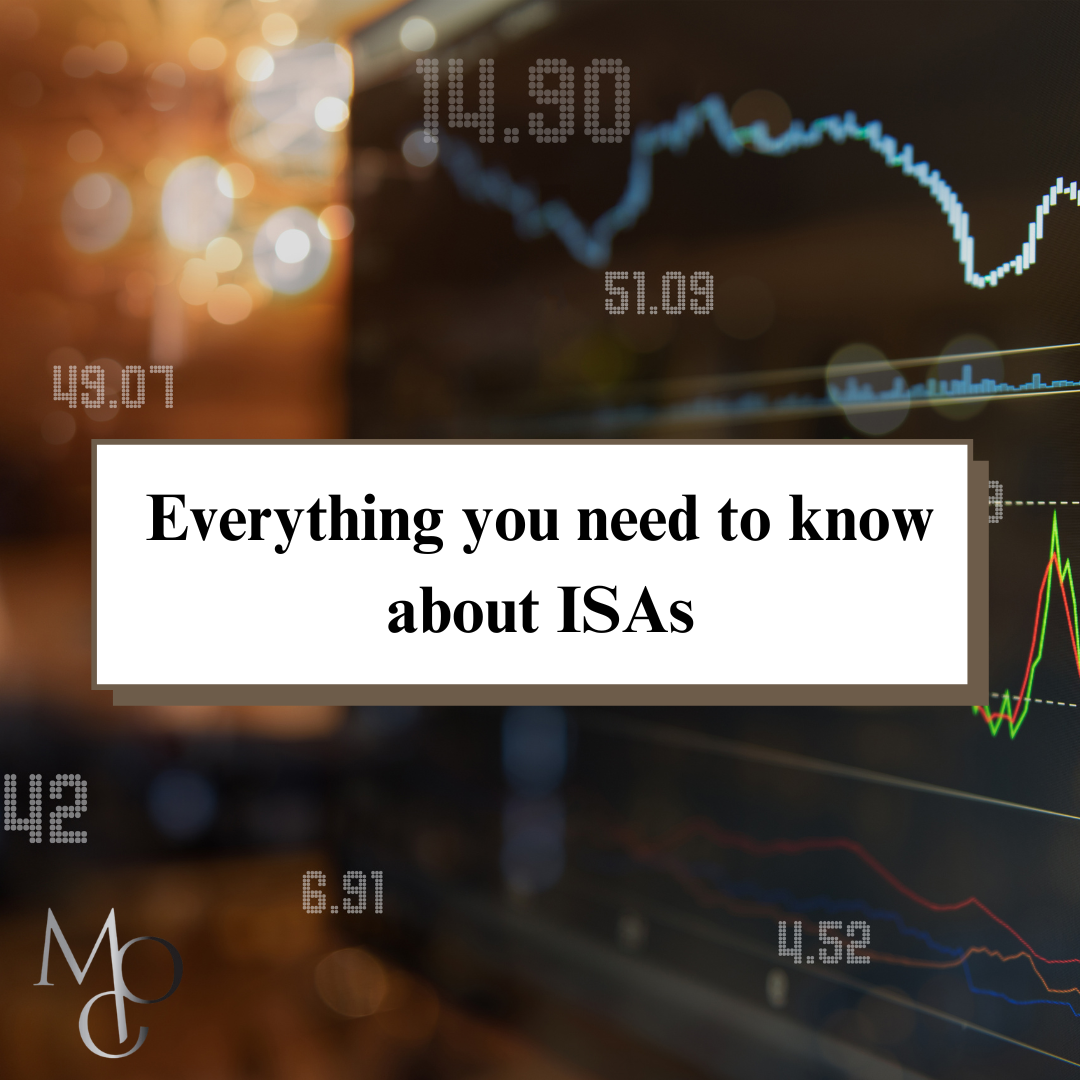
What are Individual Savings Accounts (ISAs)?
Individual Savings Accounts (ISAs) are tax-efficient investment vehicles that allow individuals to save and invest money without paying income tax or capital gains tax on the returns generated. With the investment allowance for this financial year fast approaching, in this article we will delve further into the types of ISAs available to investors, the benefits of having an ISA, investment options, and deadlines.
There are several types of ISAs available to UK residents, each catering to different investment preferences and financial goals. The most basic type is a cash ISA, which is a savings account offered by banks or building societies allowing investors to deposit cash and earn interest tax-free. Cash ISAs are suitable for individuals seeking a low-risk investment option with easy access to their funds, however they do not offer the more attractive return potential that other ISAs do. The stocks and shares ISA tends to be the most common type of ISA and offers investors access to a wide range of assets, including equities, bonds, exchange-traded funds (ETFs), Open-ended investment companies, and unit trusts. This type of ISA is ideal for investors looking to achieve higher returns through exposure to the stock market with a longer-term time horizon.
The other two, slightly more nuanced versions are the innovate finance ISA and the lifetime ISA. The former allows investors to participate in peer-to-peer lending platforms or crowdfunded investments, while still benefitting from tax-free returns. Peer-to-peer lending platforms, such as RateSetter and Zopa, facilitate investment into small businesses in the form of loans, which allows the lender to earn a rate of interest over time as the money is repaid. The innovative finance ISA can therefore be appealing to individuals seeking alternative investment opportunities outside of traditional financial markets. Lifetime ISAs on the other hand are designed to help individuals save for their first home or retirement. Account holders can contribute up to £4,000 annually, and the government provides a 25% bonus on contributions, up to a maximum of £1,000 per year.
The Chancellor, Jeremy Hunt, announced in his spring budget this week that the government would be introducing a new ISA. The “British ISA” will allow investors wishing to gain exposure to UK equities an additional £5,000 annual tax-free allowance on top of the existing £20,000 tax-free allowance each tax year. The £20,000 allowance can be spread across one or more of the original four ISAs, allowing individuals to diversify their investments whilst still enjoying tax benefits. As noted above, the lifetime ISA annual limit is £4,000, however investors can still utilise their remaining £16,000 allowance across the other types of ISA, as well as their additional £5,000 allowance for a British ISA. The deadline to invest tax-free allowances in an ISA is the end of the tax year, the 5th of April.
With most ISAs, any allowance withdrawn loses its tax benefits. For example, if an investor deposits £12,000, then withdraws £2,000, their remaining tax-free allowance will still be £8,000, and the £2,000 allowance will be lost. However, with flexible ISAs, which are available for cash ISAs, stocks and shares ISAs, and innovate finance ISAs, investors can withdraw cash without effecting their tax-free allowance. Staying with the above example, if an investor deposited £12,000 in their flexible ISA, then with withdrew £2,000, their remaining tax-free allowance would rise back to £10,000. Investors are also able to transfer their ISAs between providers any time they wish and can also transfer savings from one type of ISA to another if their needs change.
ISAs offer several key benefits to investors. One of the primary advantages is their tax-efficient nature. Any returns generated within an ISA, whether from interest, dividends, or capital gains, are shielded from income tax and capital gains tax, enabling investors to maximise returns over time. For example, an initial investment of £20,000 and monthly contributions of £1,000 would result in a value of £216,745.16 over the course of 10 years, assuming a 7.5% annual return. This breaks down in £120,000 of total contributions and £76,745.16 of total returns (figures do not take in to account the effect of charges, returns are not guaranteed, and capital is at risk with any non-cash ISA). Click here to input your own values into our compound interest calculator.
Another benefit to investing through an ISA is the flexibility in terms of investment options and accessibility to funds. Whether you prefer a low-risk cash ISA, the higher-risk stocks and shares ISA, or the innovative finance ISA, there are different options to suit investment needs. Furthermore, investors can withdraw funds from ISAs at any time without incurring tax penalties, which also enables individuals to use them for short-term savings or emergency funds. Because ISAs are usually seen as long-term investments, they allow for compounded growth by reinvesting returns. Over time, compounding can significantly enhance the value of investments, helping individuals achieve their financial objectives more efficiently. Given the annual tax-free allowance of £20,000, the roughly 4,000 ISA millionaires in the UK are testament to the power of compounded returns.
ISAs offer a tax-efficient way for UK residents to save and invest money across a variety of asset classes. By taking advantage of the annual ISA allowance and investing diligently, individuals can enhance their financial security and achieve long-term goals. Whether you’re saving for a rainy day, a dream home, or a comfortable retirement, ISAs provide a versatile and effective investment solution for investors of all backgrounds and objectives.
You can contact us here if you would like help with your ISA this tax year, or would like a free review of your existing ISA portfolio.

